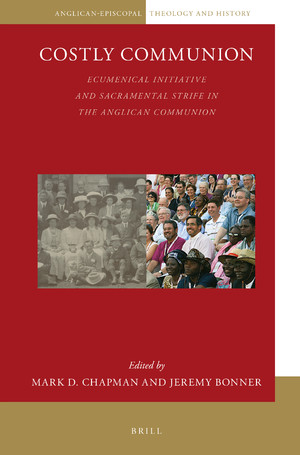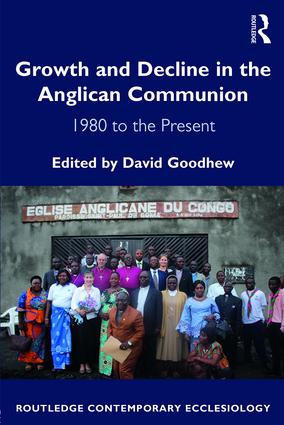This is a time of “lasts” for the Diocese of Pittsburgh: the last Christmas celebration; the last Lent; the last Holy Week; the last Trinity Sunday. That mixture of sober realism and nostalgia was visibly on display at today’s Chrism Mass, where the Bishop of Pittsburgh took for his text the third verse of Psalm Eleven: “When the foundations are being destroyed, what can the righteous do?”
In Pittsburgh, we have all had occasion to watch Bob Duncan over the past few years; at Trinity Cathedral we see him more than most. While his offices are next door, from time to time one will encounter a perambulating bishop wandering the corridors of the parish house, lost in thought. It is hard, though, to imagine the full impact of those years of struggle when, as the psalmist declares “the wicked bend their bows; they set their arrows against the strings to shoot from the shadows at the upright in heart.”
The poignancy of that moment in the service when the Bishop joined his clergy in reaffirming the promises that he made at ordination was all the more striking when one considers last week’s decision in the House of Bishops. At such a moment, it seemed peculiarly ironic that a denomination cannot distinguish between termination of the right to function in an ordained capacity within a particular national church (which all parties would seem to acknowledge as legitimate) and the declaration that a priest or bishop no longer holds valid orders for the exercise of ministry within the Anglican tradition (which, at the least, would seem to demand a trial with the same degree of rigor as that accorded Walter Righter thirteen years ago).
For all that, the homily was a much more pastoral offering that we have tended to hear from Bob Duncan in recent years, with but a single personal allusion. All the care poured into this sermon was for the priests and deacons who have borne the heat and strife of the day, those who, in the words of the assigned Epistle (2 Corinthians 4:1-12), do not lose heart since they have their ministry through God’s mercy. And perhaps it is not just “loyal” presbyters who need the assurance that “though hard pressed on every side, they will not be crushed; though perplexed, not in despair; though persecuted, not abandoned; though struck down, not destroyed,” but also the Pittsburgh Twelve and even those who stand apart from that cause to which a majority of Pittsburgh’s Episcopalians have dedicated themselves.
In the final analysis, Bishop Duncan stated, a priest’s calling is that declared by the Apostle Paul: “We have renounced secret and shameful ways; we do not use deception, nor do we distort the word of God. On the contrary, by setting forth the truth plainly we commend ourselves to every man's conscience in the sight of God.” (v.2) By the end of the year these clergy will no longer be able to gather as one and fellowship, perhaps even friendships, will be ended. Yet if secrecy, deception and distortion are eschewed and the truth is plainly set forth, then perhaps there can be victory even in defeat. Since we are all representative of fallen humanity, naturally this may be easier said than done
At several points in his sermon, the Bishop drew attention to the last days of St. Augustine in a Carthage then under siege by the Vandals. Within a short space of Augustine’s death, he remarked, the great North African Church had ceased to exist. Sitting amid the columns of Trinity Cathedral, itself testament to the rise and fall of institutional Anglicanism in North America, one wondered if another final epitaph was being pronounced.









